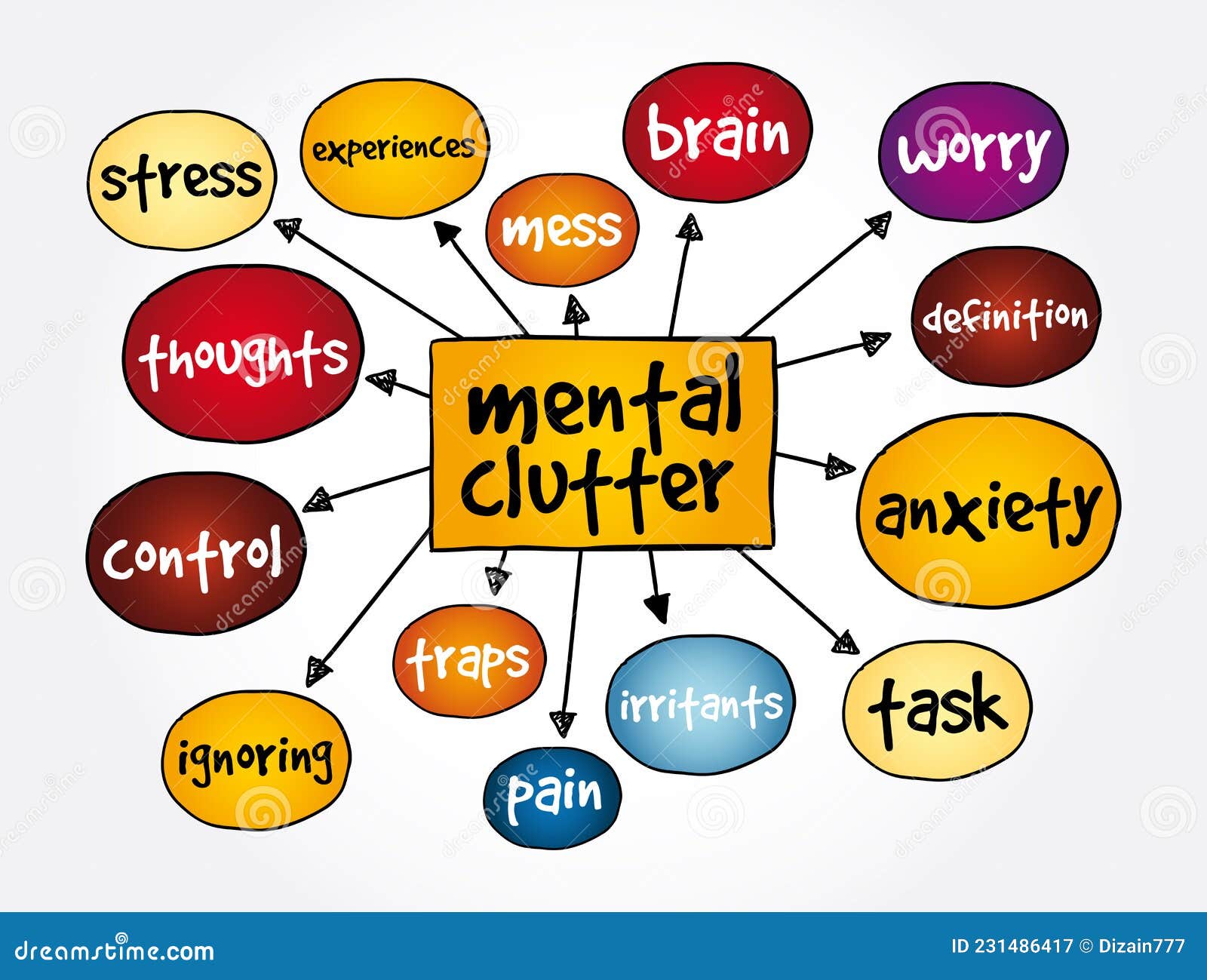In our increasingly frenetic world, the concept of mental clarity emerges as a beacon of tranquility. Bahá’í teachings offer profound insights into achieving mental clarity, which can lead to a harmonious state of being. This guide endeavors to unravel the intricate relationship between mental clutter and peace of mind within the framework of Bahá’í principles.
At the core of Bahá’í beliefs is the understanding that the mind is a divine gift, endowed with the capacity for reason, reflection, and discernment. Yet, in contemporary life, it frequently becomes encumbered by distractions, anxieties, and trivial concerns. Sorting through this mental clutter is not merely a psychological undertaking; it is a spiritual imperative that aligns with the Bahá’í aspiration toward unity and clarity.
To embark on this transformative journey, one must first cultivate an awareness of the sources of mental clutter. Perhaps it is the incessant barrage of information in our digital age, or the relentless pursuit of material success that adds weight to our thoughts. The Bahá’í teachings advocate for a conscientious appraisal of our mental environment. By recognizing the origins of our distractions, we begin the process of purification—an essential step toward achieving peace of mind.
Next, the practice of prayer and meditation should be integrated into one’s daily routine. In Bahá’í teachings, prayer is not merely a ritualistic activity but rather a profound engagement with the divine presence. Through sincere supplication, individuals can find solace and clarity. Meditation further complements this spiritual practice, fostering introspection and a deeper understanding of oneself. As one quiets the tumult of thoughts, the essence of the soul can emerge more luminously. This dual approach of prayer and meditation nurtures both the mind and spirit, allowing for a more significant detachment from mental clutter.
Alongside these practices, the principles of service and community engagement play an indispensable role in achieving mental clarity. The Bahá’í faith emphasizes the interconnectedness of all humanity, urging individuals to transcend self-centered concerns. Engaging in acts of service cultivates a sense of purpose and belonging, which can alleviate feelings of isolation and anxiety. As individuals contribute to the welfare of society, their perspective shifts from a narrow focus on personal turmoil to a broader understanding of collective responsibility. This paradigm shift diminishes the weight of mental clutter and fosters a sense of peace.
Moreover, the application of the Bahá’í concept of “consultation” serves as a valuable tool for sorting through mental chaos. Consultation involves collective deliberation aimed at arriving at informed decisions while considering diverse viewpoints. By engaging in meaningful dialogue with trusted individuals, one can gain clarity and insight. This practice not only alleviates feelings of overwhelm but also promotes collaborative problem-solving, enhancing interpersonal connections and reducing mental strain.
Importantly, the nurturing of a balanced lifestyle is essential in combating mental clutter. Bahá’í teachings advocate for moderation and moderation in all aspects of life. Dedicating time to intellectual growth, physical well-being, and spiritual development creates a harmonious existence. Overindulgence in any area inevitably leads to disarray and mental unrest. Individuals are encouraged to evaluate their daily habits critically; whether it be excessive reliance on technology, indulgences in entertainment, or neglect of physical health, everything must be approached with the principle of moderation in mind.
An essential aspect of managing mental clutter lies in understanding the transient nature of thoughts and emotions. Bahá’í teachings impart the significance of detachment, illustrating that our thoughts are not our true selves. By recognizing that emotions and thoughts are impermanent, individuals can develop resilience against the turbulence of mental clutter. Practicing mindfulness enables one to observe thoughts without attachment, allowing them to pass through rather than becoming enmeshed in them. This detachment fosters a profound sense of liberation, granting the mind the necessary space for clarity and tranquility.
Furthermore, the cultivation of gratitude serves as a formidable antidote to mental clutter. Acknowledging daily blessings shifts focus from what is lacking to what is present. The Bahá’í faith emphasizes the importance of gratitude as a means to elevate the spirit and regain mental clarity. By consciously recognizing and appreciating the abundance in one’s life, the incessant chatter of discontent can be silenced, paving the way for serenity.
Finally, the promise of transformation lies in the realization that mental clutter can be systematically unraveled. The Bahá’í teachings advocate for an enduring commitment to personal growth and self-improvement. Through the application of these principles—awareness, prayer, service, consultation, balance, detachment, gratitude—individuals can cultivate an internal oasis of peace. As the mind becomes uncluttered, the spirit can flourish, embodying the essence of unity that lies at the heart of Bahá’í teachings.
In conclusion, sorting through mental clutter is a profound endeavor that resonates with the core principles of the Bahá’í faith. The journey toward peace of mind is not merely an individual pursuit; it is a collective aspiration that calls for reflection, connection, and service. By embracing the teachings of the Bahá’í faith and applying them to our lives, we can embark on a transformative journey that leads to clarity, purpose, and ultimately, genuine peace of mind.
